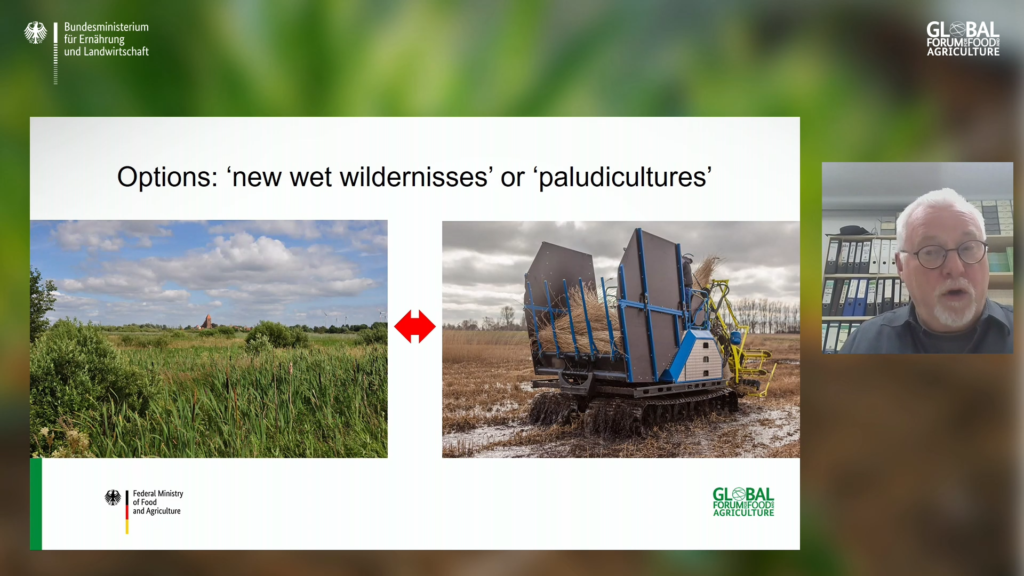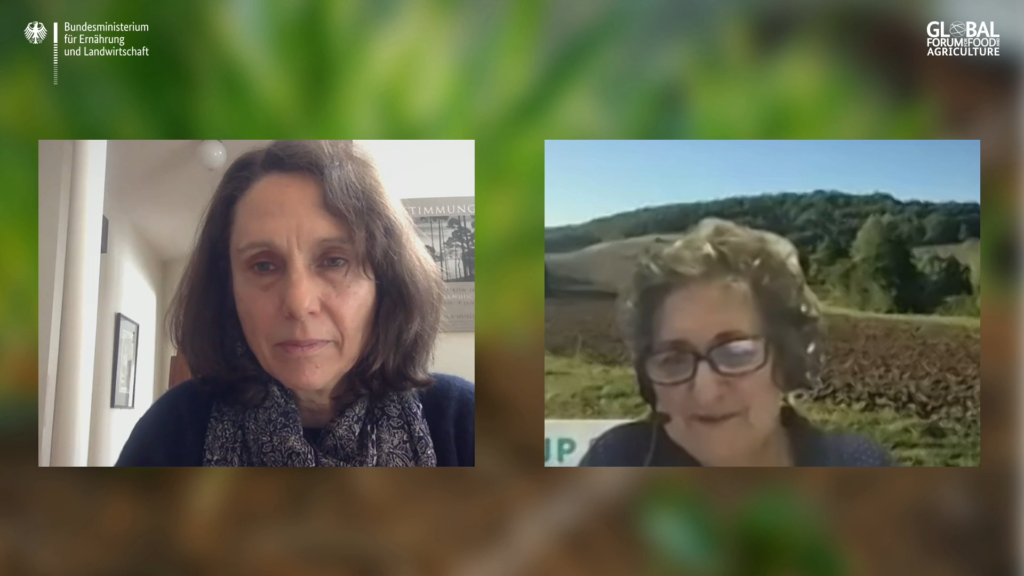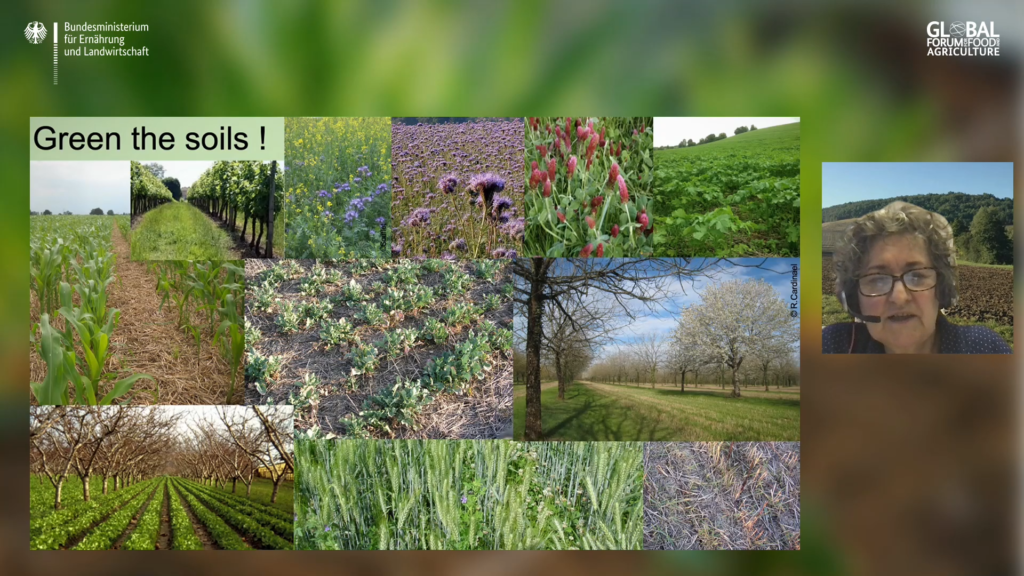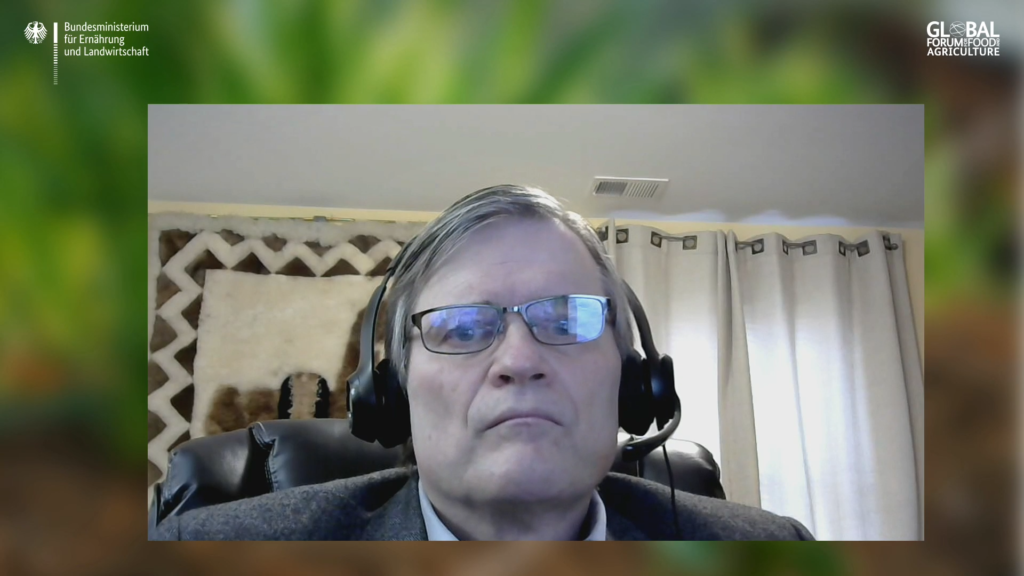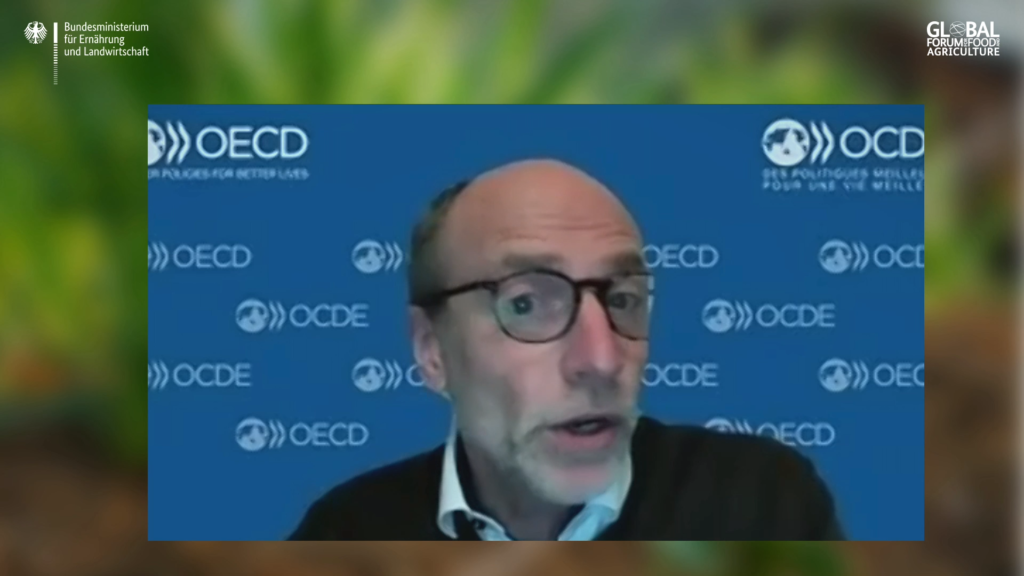From the sky down: Managing land use and soils towards net zero emissions
Organization for Economic Cooperation and Development (OECD)
Time: Tuesday, 25. January 2022, 5:00 p.m. – 6:00 p.m. (CET), subsequent deep dive 6:00 p.m. – 6:30 p.m.
Languages: English, German
Summary:
Achieving net-zero carbon emissions and limiting global
temperature increases to 2oC this century will not be possible
without augmenting the world’s terrestrial carbon sinks. Expert
speakers offered different approaches to progress in this area,
via peatland and wetland conservation, building soil carbon
sequestration by greening the land, accelerate sustainable
agricultural productivity growth to save land for forests and
conservation, and revisiting policies to encourage farmers to
move in this direction. The discussion that followed confronted
the different strategies and discussed means to combine those
and others to progress towards climate goals for the sector.
Recording
Moderator
Panel Guests
His key research topics include paludiculture, on which he edited a handbook in 2016, and peatland restoration on which he edited an overview in 2016 for Cambridge University Press and produced global guidelines for the Ramsar Convention in 2021. For IMCG he produced the books ‘Wise use of mires and peatlands’ (2002) and ‘Mires and peatlands of Europe’ (2017).
Since 2009, Hans has been intensively involved in UNFCCC negotiations and IPCC guidance development, especially with respect to accounting for emissions from organic soils, and in FAO in advancing climate-responsible peatland management. Since 2017, he is steering committee member of the United Nations Global Peatlands Initiative.
She is a member of the research unit ECOSYS at Grignon in Paris area. Her research deals with soil organic matter, which has a prominent role in ecosystem services provided by soils. She addresses the roles of soil organic matter in soil physical properties and investigates carbon dynamics and sequestration in agricultural soils. She was the 2019 Soil Science medallist of the European Geosciences Union and the recipient of the 2019 INRA Research Lifetime Achievement Award.
She is very involved in the science-policy-practice interface and in awareness raising activities on soils. She has been nominated Special Ambassador for 2015 the international year of soils by the FAO. She is member of several international committees, including being a member of the Scientific and Technical Committee of the 4 per 1000 initiative. She coordinates the EU H2020 European Joint Programme SOIL that associates 24 European countries: “Towards climate-smart sustainable management of agricultural soils”.






